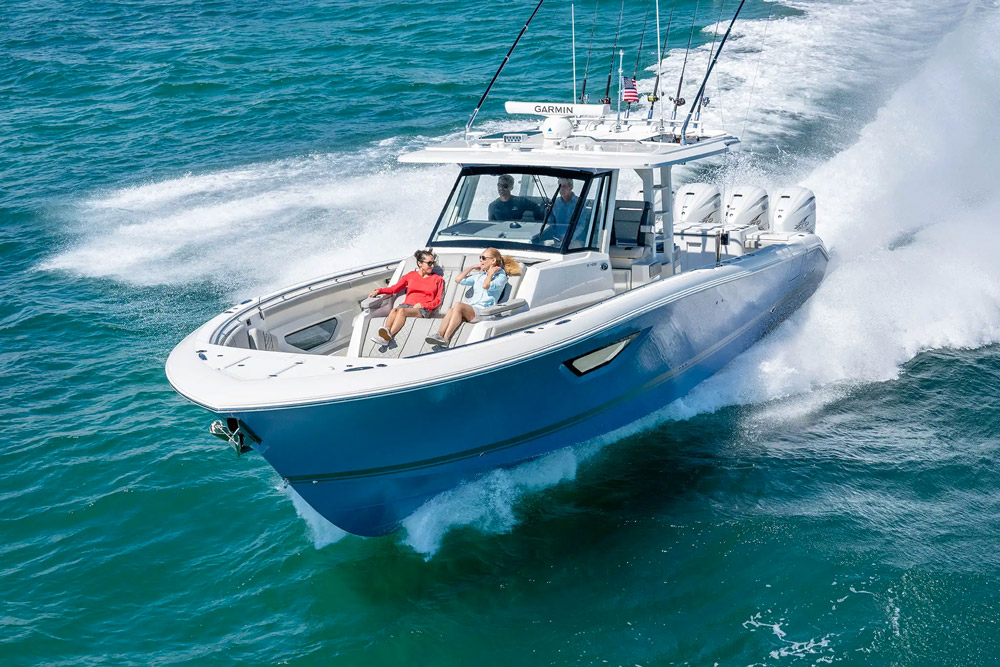
Purchasing a premium boat is a significant investment that requires careful research and planning. Buyers must look beyond the initial price and examine various factors that impact long-term ownership. From ongoing maintenance expenses to understanding resale value, a well-informed decision ensures the best experience. Luxury charter boat rental services can provide insights into high-end vessels before making a purchase.
Understanding Total Ownership Costs
The total cost of owning a premium boat extends far beyond the initial purchase price. Many first-time buyers focus on the upfront cost without fully considering the financial commitment that follows. Operating costs include fuel, dockage fees, routine maintenance, and insurance. Larger vessels also require professional crew services, which add to the expense. Additionally, seasonal storage and marina fees contribute to the long-term cost of ownership. Financial planning should account for both fixed and variable costs to avoid unexpected financial strain.
Depreciation also affects ownership costs, and understanding market trends helps in planning for potential resale. Some brands hold their value better than others, making it essential to analyze historical pricing patterns before committing to a purchase.
Evaluating Different Boat Types Available
Premium boats come in various styles, each catering to specific needs and preferences. Motor yachts, sailing yachts, sport fishing boats, and catamarans offer distinct advantages depending on their intended use. Motor yachts provide speed and luxury, making them ideal for leisure cruising. Sailing yachts offer a more traditional and eco-friendly experience. Sport fishing boats are designed for deep-sea fishing enthusiasts, while catamarans provide extra stability and space.
Lifestyle considerations play a crucial role in selecting the right type. Buyers should determine whether they plan to use their boat for short trips, extended voyages, or entertainment purposes. Visiting boat shows or consulting industry experts can help compare different models and make an informed decision.
Inspecting Build Quality and Materials
A premium boat’s construction determines its longevity and performance. High-quality materials ensure durability and reduce long-term maintenance issues. Hull construction materials vary between fiberglass, aluminum, and carbon fiber, each offering distinct advantages. Fiberglass is widely used due to its balance between weight and strength, while aluminum provides excellent durability and resistance to corrosion. Carbon fiber, though more expensive, offers superior strength with reduced weight, enhancing fuel efficiency and speed.
Interior finishes also play a role in comfort and durability. High-end woods, stainless steel fixtures, and leather upholstery indicate superior craftsmanship. Checking for seamless construction and well-finished joints provides insight into a boat’s build quality. Buyers should examine decks, hulls, and engine compartments for signs of wear or defects before finalizing a purchase.
Considering Resale Value and Depreciation
Depreciation is a major factor in premium boat ownership. While some models retain their value well, others experience significant depreciation within the first few years. Buyers should research resale trends before making a decision. Limited-edition models and those from renowned manufacturers typically hold their value better than mass-produced boats. Maintenance history and overall condition also impact resale value, making regular upkeep essential for long-term investment returns.
Another key factor influencing depreciation is technological advancement. Innovations in navigation systems, energy efficiency, and onboard entertainment can make older models less desirable. Choosing a boat with cutting-edge technology ensures a competitive resale position in the future market.
Assessing Manufacturer Reputation
A boat’s manufacturer plays a crucial role in determining quality and reliability. Established brands with a history of superior craftsmanship and customer satisfaction offer a more secure investment. Researching customer reviews and expert opinions provides valuable insights into brand performance.
Reputation also extends to after-sales support. Manufacturers with strong customer service networks offer better warranties, parts availability, and repair services. A well-established manufacturer with a global presence ensures that replacement components and technical support remain accessible, even in remote locations.
Arranging Professional Marine Surveys
A marine survey is a critical step before purchasing a premium boat. Professional marine surveyors assess the vessel’s overall condition, identifying potential structural or mechanical issues. A thorough inspection covers key areas such as hull integrity, electrical systems, plumbing, and engine performance.
Buyers should insist on a sea trial to observe how the boat performs under real operating conditions. A test run reveals issues related to handling, engine efficiency, and onboard comfort. Survey reports provide leverage in price negotiations and help buyers make informed decisions based on expert evaluations.
Conclusion
Purchasing a premium boat is an exciting yet complex process that demands careful research and financial planning. Assessing total ownership costs, evaluating different boat types, and inspecting build quality ensure a sound investment. Market trends play a significant role in resale value, making brand reputation and depreciation key considerations. Professional marine surveys provide a final layer of confidence before completing a purchase. Luxury charter boat rental services can serve as a trial experience to understand what high-end vessels offer before making a long-term commitment.
